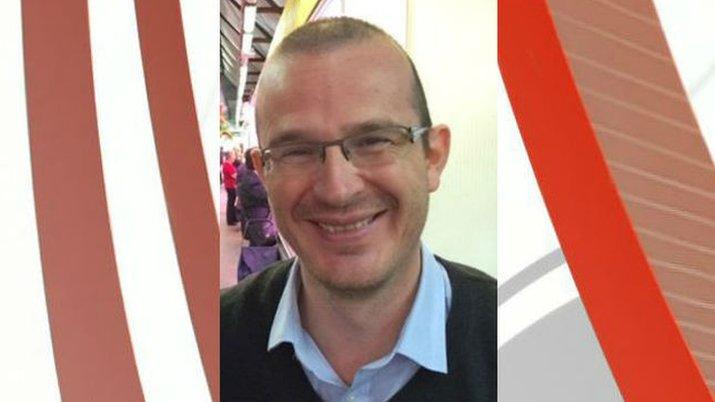Academic Jeroen Ensink death: Indefinite hospital order for killer
- Published
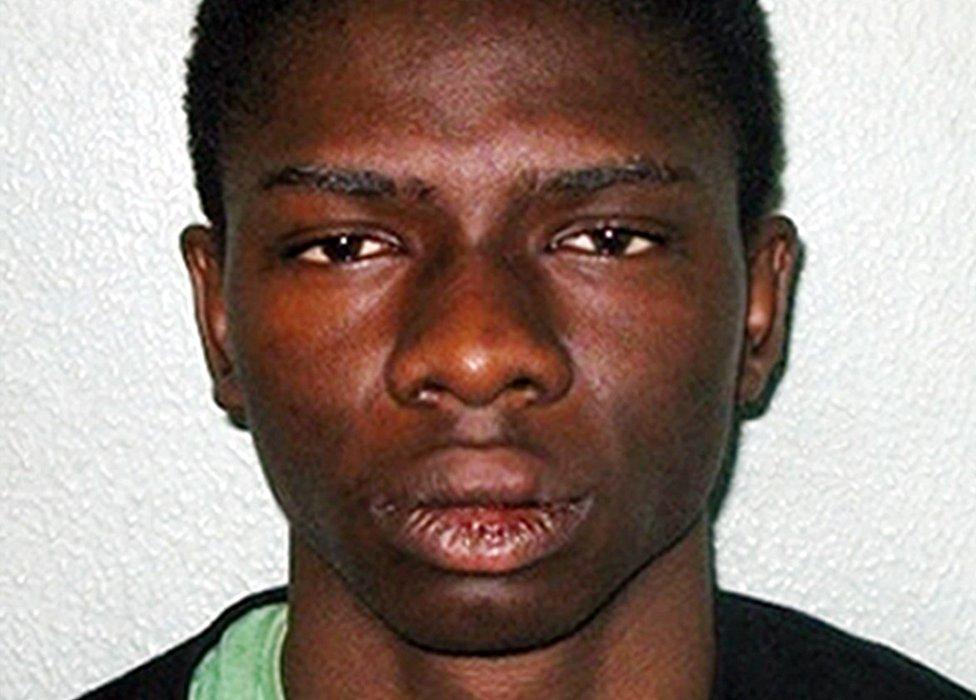
Femi Nandap admitted manslaughter by reason of diminished responsibility
A student who killed an academic who had gone out to post cards announcing the birth of his daughter has been given an indefinite hospital order.
Nigerian Femi Nandap, 23, stabbed Jeroen Ensink, 41, to death in Islington, north London, while in a psychotic rage last December.
He attacked Dr Ensink days after knife charges against him were dropped.
The victim's widow demanded an inquiry into "mental health homicides" that "keep happening again and again".
Jeroen Ensink death: Widow pays tribute
Nandap had admitted manslaughter by diminished responsibility.
Dr Ensink had been leading a project to improve health in Africa through better water quality and sanitation.
Sentencing Nandap at the Old Bailey, Judge Nicholas Hilliard QC described the victim as a "truly remarkable man" adding: "His death is a loss to a large proportion of the world's poor."
He added: "I express the hope that those in a position to do so will investigate all aspects of this case."
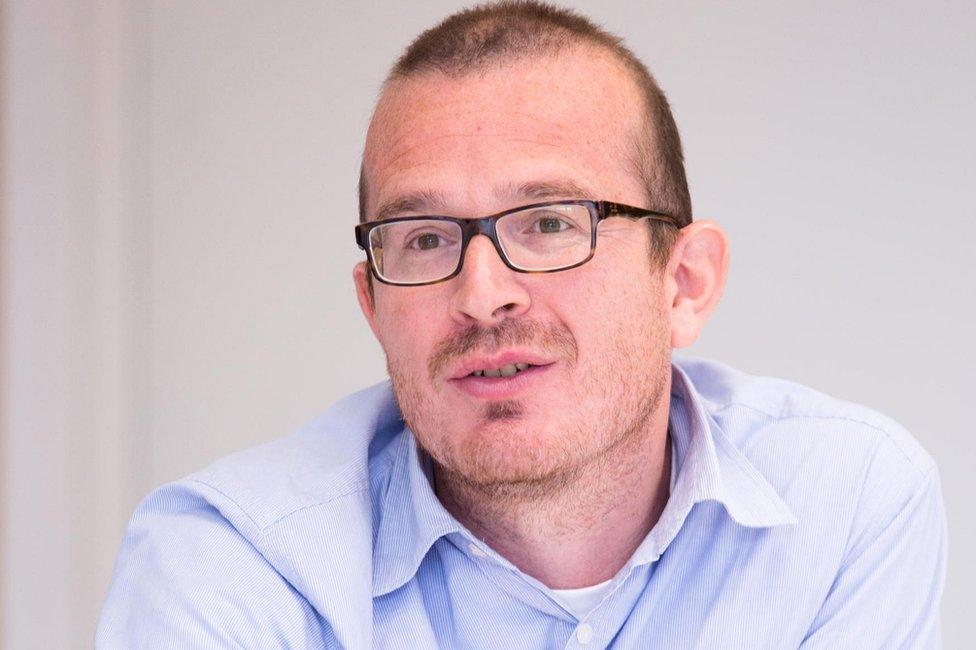
Dr Jeroen Ensink was killed metres from his home as he went to post cards announcing his daughter's birth
Reading her victim impact statement in court, Dr Ensink's wife Nadja Ensink-Teich demanded an independent investigation into failings by both the mental health service and legal system which led to charges against the killer being dropped six days before the fatal attack.

How many mental health homicides are there?
There have been an average of 72 UK homicides a year by patients with mental health problems over the last 12 years.
According to a University of Manchester report, there were 870 killings by mental health patients in the UK between 2004 and 2016 - 11% of the total number of homicides in the UK.
Of the 870 cases, 431 involved people diagnosed with schizophrenia.
The report found the majority of killings were carried out by people with a history of alcohol and drug misuse.
It also stated that 177 of those who killed strangers were mental health patients - an average of 10 per year - representing 7% of all stranger killings.
But the report's authors found "people who kill strangers are more often young men who are intoxicated, rather than people with mental illness".
Source: The National Confidential Inquiry into Suicide and Homicide by People with Mental Illness, external

The court heard Nandap, who came to Britain to take an African studies and economic development course, had been charged in May with possession of a 30-inch knife and assault of a police officer after he punched and bit an officer who was trying to arrest him. The charges were later dropped.
Mrs Ensink-Teich, who was in court with her baby daughter Fleur to see Nandap sentenced, said: "Not only was the love of my life taken from me, but with him also all of our hopes and dreams.
"This is a terrible tragedy for me and for Jeroen's daughter, and family and friends but it is not a one off; mental health homicides keep happening again and again.
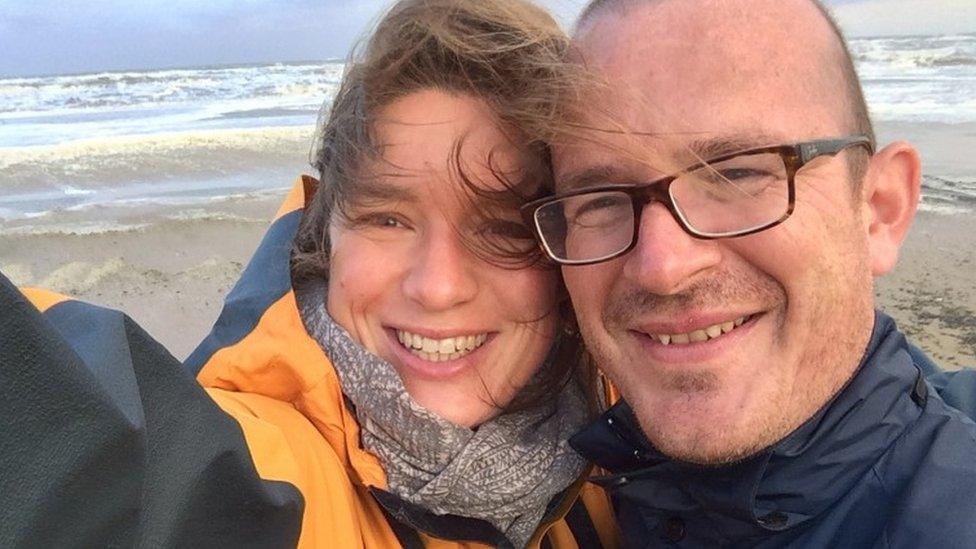
Mrs Ensink-Teich described her husband as her "soulmate".
"If such tragedies keep occurring, why has there not been concerted action to address this?
"If a person with a history of mental health problems is found wandering about with a knife, and attacks a police officer, then that person must be referred to a secure unit for proper assessment and treatment and not given bail so easily."
The court heard Nandap, of Woolwich, south-east London, was in a cannabis-induced psychotic rage and stabbed Dr Ensink repeatedly in the chest and back until an off duty special constable intervened.
Femi Nandap was suffering from psychosis - psychiatrist Trevor Turner explained it to Eddie Mair on BBC Radio 4's PM programme
Nandap told psychiatrists he had started to receive telepathic messages and considered himself the "chosen one" or "messiah" in spring last year, prior to the attack on the police officer.
- Published8 September 2016
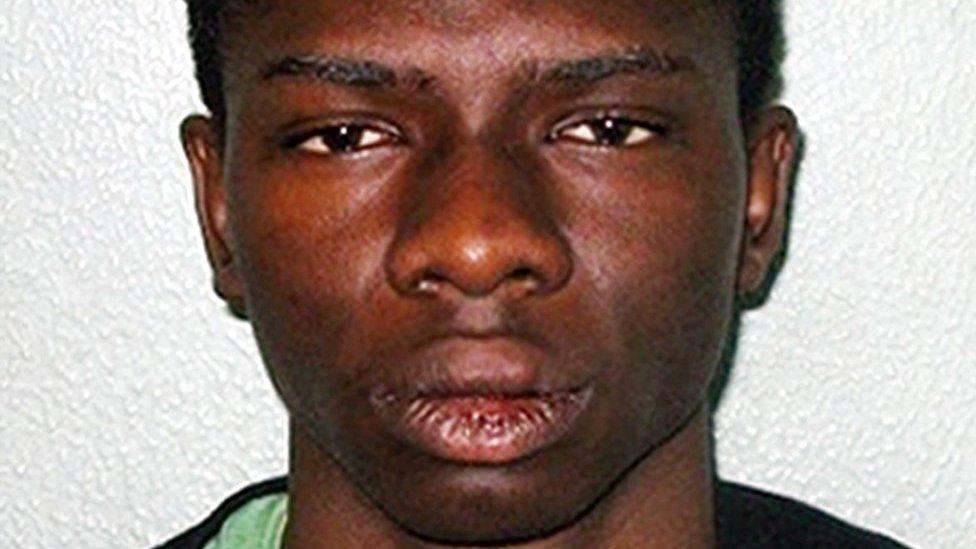
- Published1 January 2016
